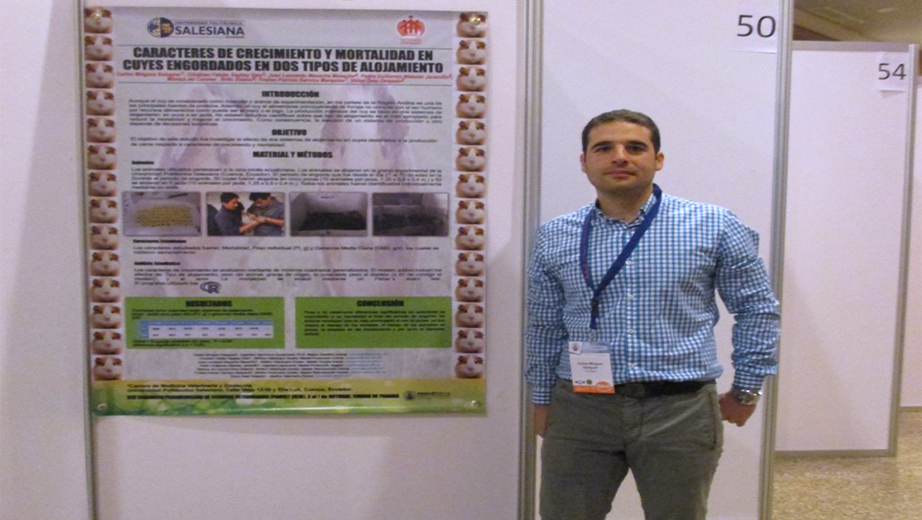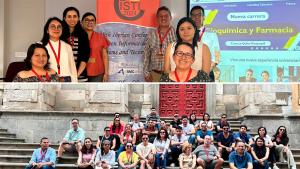GLOBALGEN presented its research on the breeding of guinea pigs
GLOBALGEN presented its research on the breeding of guinea pigs

Professor Carlos Minguez, coordinator of the Genetic Improvement in the production of livestock species Research Group- (Grupo de Investigación de Mejora Genética en Producción Global en Especies Ganaderas GLOBALGEN), presented the groups' research on the production and breeding of guinea pigs for meat trading during the Pan-American Congress on Veterinary Sciences (PANVET 2016). The paper is titled "Caracteres de crecimiento y mortalidad en cuyes engordados en dos tipos de alojamiento"
The PANVET was held in the city of Panama from the 3rd to the 7th of October and is one of the most prestigious and attended events on veterinary science worldwide and the most important in Latin America. In this year's congress there was a new program based on scientific and educational principles that are applied to vanguard events as well as numerous technological elements for a better development of veterinary science.
During his presentation, Carlos Minguez explained that the production of guinea pigs for the food market is done based on two housing systems: in a cage or outside. There is no work to determine which of the two systems is more appropriate regarding production parameters or mortality. The decision of the system is based on subjective decisions since there are no scientific projects that compare the two production systems.
Thanks to this study the GLOBALGEN research group now provides scientific evidence that the most appropriate housing system for fattening guinea pigs is the one based on cages. This research is part of a greater study which is currently under revision by an indexed journal.
The co-authors of the project are all the other members of GLOBALGEN: Juan Leonardo Masache Masache, Patricio Garnica, Mónica Brito Solano, Cristhian Fabián Sagbay, Pedro Webster Jaramillo and Víctor Zeas Delgado.





Follow us
Follow us